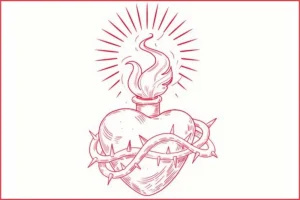Marijuana, benefits and risks
Marijuana love and health, includes in the title something that this drug cannot provide. The access to marijuana nowadays has been accelerated in an unprecedented way. There are more and more blogs and YouTube channels dedicated to offering news and advice for its cultivation and consumption.
This situation causes many Christians to ask themselves in a more direct way if smoking marijuana is, after all, so bad. In this post we want to offer some reflections on this topic.
To begin, it is convenient to clarify that from the point of view of Christian ethics the recreational use of the marijuana (outside the analysis of its therapeutic use) is not well seen and it is decidedly dissuaded. This judgment is based essentially on two reasons.
Marijuana and its impact on health
The first of them is by the negative impact on health. It is enough to consult a manual of medical toxicology, a finder of serious articles of medicine (ex. PubMed), or more directly the European Monitory Centre for Drugs and Drug Addiction (EMCDDA) to realize that its consumption – for many – can be dangerous; that marijuana becomes – for many – a dependency; that it means – for many – a diminution of the yield in studies, work, social life etc.
We have repeated “for many” intentionally, because it also seems to be certain that there are other “many” for whom its consumption does not suppose an impact so manifest or in any case, produces damage though it is created to tolerate, as it happens, for example, with the tolerance to the extremely negative impact that the consumption of tobacco causes to our health.
Marijuana and your relationship with others
This is where the second reason comes in. From the Christian point of view, it is not only health care that makes smoking marijuana “bad”. This second motivation has to do with the specific life proposal to which the Christian faith invites us. This proposal consists of promoting everything that enhances the personal capacity to enter into relationship with the world, with others and with God and to discourage those that tend to the search of oneself at the expense of others, to selfishness, to be closed in one’s own immanence.
If we focus on dealing with others, the relationships that are promoted are based on the art of seeking the good of the other, on making oneself close to all – being the good neighbour -, on fostering what a Scottish author calls the “virtues of recognized dependence”: generosity, mercy, piety, forgiveness, gratitude, tenderness and, above all, mutual care. This way of living is what characterizes Christian and demands that we undertake a life path made up of small decisions in which we limit the damage of our multifaceted selfishness and encourage sensitivity to the needs of others.
Marijuana that ruins love and health
At this point, we can ask ourselves what does marijuana have to do with all this? The answer, I think, is this: when we are affected by marijuana we become fundamentally unable to follow this ideal.
When one smokes marijuana, the epicentre of attention is no longer others but oneself. The marijuana alters us in one or more ways and in fact it is the obvious reason for which this drug is consumed. With only a glance at the cannabic terminology it jumps to the view that the essential thing of the marijuana is to obtain that “a high”. In short, this blurring of our attention and self-control that being high produces does not help to live and make real the core of Christian life.
And although it is common to smoke in a group, and in some sense one can say that it strengthens the relationship with others, it is difficult to say that an atmosphere of mutual care and encouragement reigns there. One is in company, but so often it is merely a spatial coincidence. Each one goes his own way. Each one concentrates on making sure that the puff of smoke is good. We are far from making real Saint Paul’s invitation: “Bear one another’s burdens”.
Marijuana and love without health
In this sense, smoking marijuana is a harmful pleasure. Not because Christianity limits pleasure to small and measured doses, but because it generates a kind of inner noise that impedes to sound the music of mutual care, the music of love, made of small gestures, which are lived in a daily, self-sacrificing and joyful way.
Marijuana is definitely not a good ally at the time of training for the type of love to which our faith invites us to, love that does not fear to the sacrifice of one’s own taste, love that does not want to depend on the swing of the feelings, love that looks to take care of the other without prepotency, without impositions nor substitutions. Perhaps it is to this sobriety that love demands, one day after another, that Christ referred to, when he made it a condition of his following to take up the little cross of each day.
Martín Luque







0 Comments